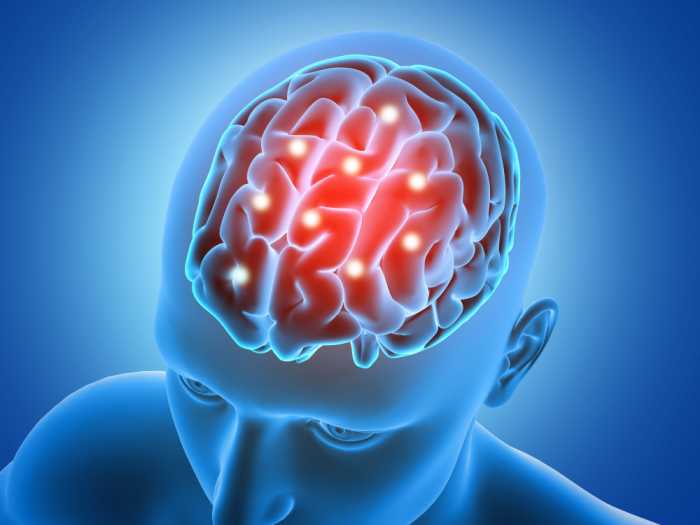Exercise has been associated with many health benefits including physical fitness, weight loss benefits, cardiovascular benefits and mental health benefits. There are many theories and beliefs about intelligence, it’s acquisition, categories and exposition.
What is Intelligence?
Simply, intelligence is the ability to learn, reason and get solutions to problems. It is significantly highly heritable and gives strong predictability in the outcome of many areas of life including education, occupation and health [1].
It can also be explained as the ability to learn from experience and adapt to, shape and select environments [2]. It involves cognition and brain function especially in the prefrontal cortex. Studies have demonstrated the role genes and environment play in an individual’s intelligence.
Many tests dating back to the 20th century have been carried out to measure intelligence.
Talking about intelligence brings up the issue of IQ (intelligence quotient). IQ is a measure of a person’s reasoning ability and some researches published argue that intelligence is highly stable; whilst IQ is variable at least [3]. They have it that Intelligence varies across generations and lifespan [4].
A study by Flynn indicates that the average IQ as measured by raw scores increases by 3 points every decade through many nations in the 20th century [5].
Some theories of intelligence
Most theories as demonstrated by different great authors commonly assess a wide variety of cognitive tasks (general ability). Those theories look at cognitive functions and life outcomes such as income, job, performance, health, the ability to cope with novelty and think rapidly as well as flexibly, vocabulary and general information.
Some authors have it that intelligence is multiple [6] which could be linguistic, mathematical, spatial, music, body-kinesthetic, naturalistic and interpersonal.
Another theorists believed that, Intelligence involves a person’s analytical, creative and practical aspects that emanates through a person’s lifespan [7].
Also, a theory based on the biological bases of intelligence directly investigates the brain and its function. In those circumstances, the IQ test is done to measure the prefrontal cortex activity. People with higher IQs tend to have higher levels of functionality in the superior parietal, temporal occipital cortices as well as the subcortical regions of the brain [8].
Besides, speed of conduction of neural impulses correlated with IQ test [9]. There is even some evidence that people with higher cerebral efficiency demonstrated low glucose metabolism in the brain [10].
In short, Intelligence can be expressed in so many ways and the intelligence of a person cannot be summarized in just one aspect of life.
Brain size and intelligence. Are men smarter?

Ideas and beliefs on the correlation between the size of the brain and intelligence is an area that few authors have researched on.
However, research conducted in humans shows that greater intelligence correlates with larger brains or both may be dependent on some third factor [11].
This brings to note the fact that on average, men have larger brains than women. However, women have better connections through the corpus callosum between the hemispheres [12]. It’s therefore not clear on average which gender or sex is more intelligent [12]. But one can attest to the fact that most brilliant discoveries and inventions including global transformation are owed to men.
Genetics and intelligence. What you need to know?

As already indicated in my introduction, Intelligence is highly inheritable. In recent times, many studies in neuroscience have been published in response to the relationship between genetics and intelligence. Studies conducted cut across twin studies and genome wide association studies (GWAS).
Recent genome wide association studies have successfully identified inherited genome sequence differences that account for 20 of the 50% heritability of intelligence [1]. For one aspect of the study, using GWAS on intelligence, it was found that intelligence highly correlated phenotypically and genotypically with education [1]. And a meta-analytic GWAS analysis of years of education in 2013 [13] and 2016 [14], affirmed the observed correlation.
A very interesting finding about intelligence in twin studies shows that its heritability as estimated increases dramatically from infancy (20%) to childhood (40%) to adulthood (60%) [15]. They realised that this increasing trend of heritability was probably magnified by the general environment as time goes by [16].
So, the environment has a role to play in intelligence.
As intelligence has always been known to run in families, there is the assumption of ‘shared family environment’ and nurturing playing a part. Twin and adoption studies strongly and consistently support this assumption [17].
Also, as commonly believed, children inherit their intelligence from their mothers. This is because most of the genes for intelligence have been traced to the X-chromosome by scientists. This has been the belief but further robust studies are required to draw a conclusion regardless of the consistent observations seen in society.
Exercise and intelligence. Fact or myth?

Does regular exercise make you more intelligent? Recording back to the time of ancient Greeks, there has been an implicit belief that exercise is linked to intellectual abilities.
But that notwithstanding, there has not been any systematic review on the relation between physical activity and intelligence, not until recently. This is because most researchers focused more on the physical benefits of exercise rather than cognitive benefits in the 1950s and 1960s.
Now, there is a renewed interest in evaluating the effects of exercise on psychological health due to the emergence of academic degree programs specializing in exercise psychology [18].
Several studies have demonstrated that exercise performance on a regular basis for many weeks changes brain function that underlie cognitive and behavioral function [18].
It’s been studied that exercise (physical activity) substantially affects brain executive function including; planning, response inhibition, working memory, controlled brain processing and visuospatial processing [19].
Executive functions are those that involve planning, and choosing strategies that organize goal directed actions [20].
Some studies tried to investigate the effect of exercise on scholastic performance of children in school and it revealed small but significant correlation [21]. Some other studies refute this initial study reporting that exercise has little to no effect or impact on intelligence and that heritability has the major effect and some environmental influence.
However, regardless of such conclusions that makes it difficult to explicitly make out the impact of exercise on intelligence, the benefits of exercise on the executive function of the brain is motivating and one should seek to enhance such.
REFERENCES
- Robert Plomin and Sophie von Stumm, 2018. The new genetics of intelligence. Institute of Psychiatry, Psychology and Neuroscience, King’s College London, 16 De Crespigny Park, London SE5 8AF, UK. doi:10.1038/nrg.2017.104 Published online 8 Jan 2018.
- Robert J. Sternberg, PhD, 2012. Intelligence. Sternberg Dialogues in Clinical Neuroscience – Vol 14 . No. 1 . 2012.
- Herrnstein RJ, Murray C. The Bell Curve. New York, NY: Free Press; 1994.
- McArdle JJ, Ferrer-Caja E, Hamagami F, Woodcock R. Comparative longitudinal structural analyses of the growth and decline of multiple intellectual abilities over the life span. Dev Psychol. 2002;38:115-142.
- Flynn JR. What is Intelligence? Beyond the Flynn Effect. Enlarged ed. Cambridge, UK: Cambridge University Press; 2009.
- Gardner H. Multiple Intelligences: New Horizons in Theory and Practice. New York, NY: Basic Books; 2006.
- Sternberg RJ. Wisdom, Intelligence, and Creativity Synthesized. New York, NY: Cambridge University Press; 2003.
- Duncan J, Seitz RJ Kolodny J, Bor D, Herzog H, Ahmed A. A neural basis for general intelligence. Science. 2000;289:457-460.
- Neubauer AC, Fink A, Schrausser DG. Intelligence and neural efficiency: the influence of task content and sex on the brain-IQ relationship. Intelligence. 2002;30:515-536.
- Haier RJ, Jung RE. Beautiful minds (i.e., brains) and the neural basis of intelligence. Behav Brain Sci. 2007;30:174-178.
- Haier RJ, Jung RE, Yeo RA, Head K, Alkire MT. Structural brain variation and general intelligence. NeuroImage. 2004; 23:425-433.
- Halpern, D. Sex Differences in Cognitive Abilities. 4th ed. New York, NY: Psychology Press; 2011.
- Rietveld, C. A. et al. Common genetic variants associated with cognitive performance identified using the proxy-phenotype method. Proc. Natl Acad. Sci. USA 111, 13790–13794 (2014).This study uses EA1 SNPs to predict intelligence, although less than 1% of the variance is predicted.
- Okbay, A. et al. Genome-wide association study identifies 74 loci associated with educational attainment. Nature 533, 539–542 (2016).This is the GWAS origin of EA2 GPS, which increases the prediction of educational attainment from 1% to 3% of the variance.
- Haworth, C. M. et al. A twin study of the genetics of high cognitive ability selected from 11,000 twin pairs in six studies from four countries. Behav. Genet. 39, 359–370 (2009).
- Briley, D. A. & Tucker-Drob, E. M. Explaining the increasing heritability of cognitive ability across development: a meta-analysis of longitudinal twin and adoption studies. Psychol. Sci. 24, 1704–1713 (2013).
- Plomin, R. & Daniels, D. Why are children in the same family so different from one another? Behav. Brain Sci. 10, 1–16 (1987).
- Pereira AC, Huddleston DE, Brickman AM, Sosunov AA, Hen R, McKhann GM, et al. An in vivo correlate of exercise-induced neurogenesis in adult dentate gyrus. Proceedings of the National Academy of Science 2007;104(13):5638–5643.
- Spirduso WW, Clifford P. Replication of age and physical activity effects on reaction and movement time. Journal of Gerontology 1978;33:26–30. [PubMed: 618962]
- Das, JP.; Naglieri, JA.; Kirby, JR. Assessment of cognitive processes. Needham Heights, MA: Allyn and Bacon; 1994.
- Ismail AH. The effects of a well-organized physical education programme on intellectual performance. Research in Physical Education 1967;1:31–38.









Leave a Comment